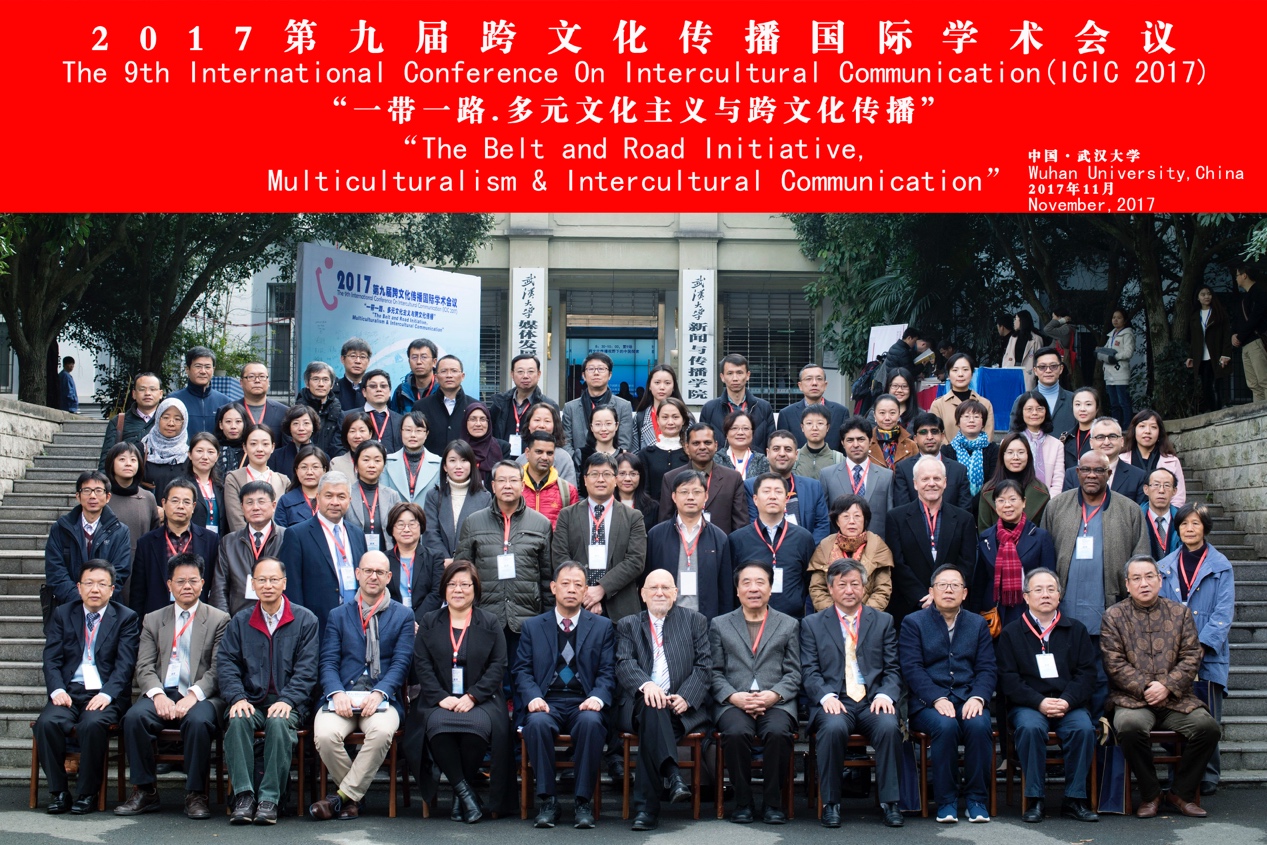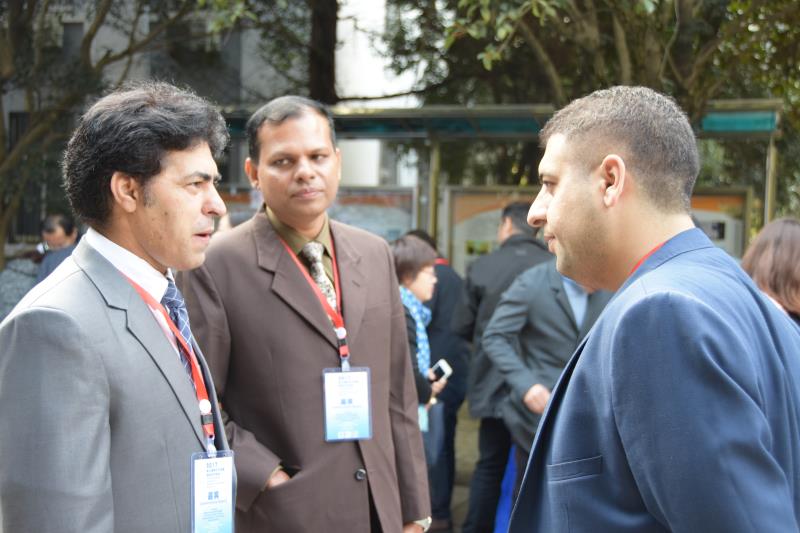The 9th International Conference on Intercultural Communication, which is also known as ICIC2017 in brief, was held in Wuhan University successfully from Nov.24-Nov.26. Scholars from 17 countries and regions brought their latest research results and conducted full discussions in 14 forums, based on which the Intercultural Consensus on The Belt and Road Initiative was concluded by the conference convener. This is the 8th time for our school to hold the conference. Professor Fei Li, vice president of Wuhan University attended the conference and made a speech.

The conference not only includes extensive ranges of papers written by scholars from 10 countries along the Belt and Road involving Malaysia, Nigeria, Sri Lanka, Thailand, Pakistan, Singapore, Turkey, Iran, The United Arab Emirates and China, but also those who came from countries and regions including the USA, France, Germany, Australia, Sweden, Hongkong China, Chinese Taipei and so on.
Embroidered on the theme of ICIC2017, this conference covered topics of practices and researches of intercultural communication in global perspective; thoughts and strategies of intercultural communication on The Belt and Road; intercultural communication and multicultural practices; cultural spirits and social interaction of intercultural communication; global practices of intercultural communication; media representation and intercultural communication; the subject, discourse and effect of The Belt and Road communication; intercultural interpretation of The Belt and Road; Chinese explorations in the context of intercultural communication; the branding and rhetoric in the intercultural communication of The Belt and Road; research on community of common destiny of cultural pluralism; theories and practices on intercultural communication; The Belt and Road and cultural communication in Central Asia; and The Belt and Road and the reflection of the paths of intercultural communication.

The Intercultural Consensus on The Belt and Road Initiative is initially concluded by the conference convener on the basis of opinions of the scholars participated in the conference. The consensus mainly includes six points as below:
1. Multiculturalism should carry on amendment and reconstruction focusing on “communication”, thus to be the foundation of intercultural communication of The Belt and Road.
2. The practice of intercultural communication of The Belt and Road should seek for wisdom and methods of communication between polyethnic groups in Chinese culture, while absorbing wisdom from other cultures to have the possibility of realizing “people-to-people bond”.
3. Intercultural communication of The Belt and Road should turn to cultural elements that are more diversified, localized and subdivided, understanding the validity and limits of mutual understanding, while promoting intercultural understanding in contextualization
4.The building of intercultural discourse of The Belt and Road needs to show more openness, inclusiveness and complementarity, that is, the ability of moral practice in interculturalism.
5.The intercultural communication of The Belt and Road needs to build basic principles of intersubjectivity, interculturalism and equal rights.
6.The practices of multiculturalism in intercultural communication of the Belt and Road is likely to create new innovative human knowledge and cultural interaction.

It is agreed that from the view of latest developments in human social practices, the Belt and Road Initiative seek to go beyond the limitation of globalization and connecting 65 countries along the line, providing space of imagination and paths of practices for intercultural communication of humankind.The "Belt and Road Initiative" included concepts of intercultural communication such as "community of shared interests," "community of common destiny," and "people to people bond." The Chinese people are exploring new ways of multicultural practices. And in the process of exploration, human society requires to think together about how to perceive, deconstruct and reshape our experience as well as the world of meaning through intercultural communication and mutual understanding. We need to uphold the principle of equality between and within nations and cultures, and to view the history of human civilization as an intercultural process of interactive and creative transformation.
Prof. Bo Shan, the conference convener, changjiang scholar and distinguished professor, director of Center for Studies of Media Development, Key Research Institute of Humanities and Social Sciences at Universities authorized by Ministry of Education of PRC, says that the consensus mentioned above derive from the wisdom provided by all the scholars and their work of ICIC2017. It’s both our preliminary conclusion and the new starting point to think of China and the world from the perspective of community of common destiny.

Communication of Wuhan University, Center of Studies for Media Development of Wuhan University, Key Research Institute of Humanities and Social Sciences at Universities authorized by Ministry of Education of PRC, the Research Centre For Social Development of Islamic Countries of HeBei University and the Think Tank of Research Alliance of Countries along OBOR(China).



